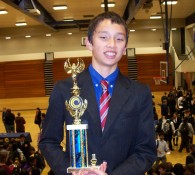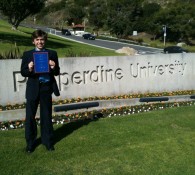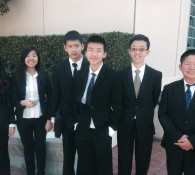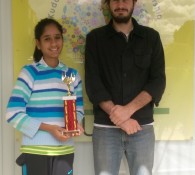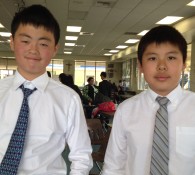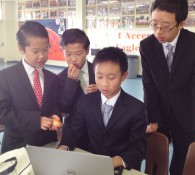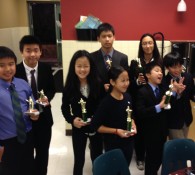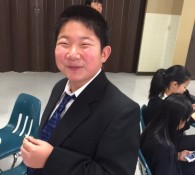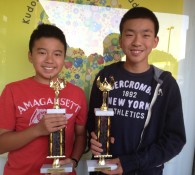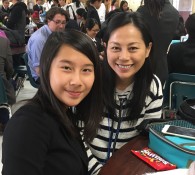FAQ
Basic Questions
1. What is Kudos?
Kudos Education develops leadership and academic skills through competition speech and debate. We identify and develop talent and interest in beginners and provide top-level training for serious debaters.
2. What is competition speech and debate?
History
Inter-school competition speech and debate, also known as “forensics,” began for high school students in 1925 with the founding of the National Forensics League (NFL). At first, the league only featured policy debate, but since it has come to include a number of distinct speech and debate events. Most serious competitions now abide by NFL standards (with some local variations), and most successful programs are NFL members.
How Tournaments Work
Tournaments feature multiple rounds, which means that at each tournament, each student gets a chance to debate a topic or deliver a presentation several times at least.
Debate
In debate, students engage in head to head matchups against debaters from other schools. If a student wins enough preliminary rounds, he or she then advances to “playoff” rounds, called break rounds, each of which is single elimination. This continues until one student or team is determined to be the winner.
Speech
In speech events, students compete against five or 6 other students, each delivering
his or her speech in succession. The judge then ranks the students, 1st through 6th
place in the round. These ranks are then added up after preliminary rounds to
determine who advances to break rounds. The best students in these break rounds
will then advance to a final round that usually includes 6 competitors.
Awards
After all of the rounds are completed, students gather for an awards ceremony, where the top students in each event receive trophies. Generally, awards are given to all finalists in speech events, and to the top 6 or 8 in each debate event. In addition to trophies, some national tournaments offer financial awards, in the form of scholarships. Lastly, students can earn NFL and NJFL points for success in tournaments.
3. How does participation in Speech and Debate help my child?
Participation improves skills related to:
—–speech
—–critical thought
—–research
—–writing
—–listening
—–teamwork
—–citizenship
—–creativity
—–performance
—–responsibility
—–intrinsic motivation
—–tact
—–self-confidence
—–character
Frankly, in terms of benefits, no other activity comes close.
4. Can you be more specific about practical benefits?
—–The average debate team has a GPA of 3.75.
—–The average debater is in the top ten percent of his class.
—–98.58% of debate students attend college.
—–Debate participation increases the chances of being offered college scholarships.
—–Skills developed in debate help maximize career success. Many top corporate
executives and high-ranking officials in all branches of government are former high
school debaters.
5. How does speech and debate relate to Common Core learning?
Speech and debate develops many skills that directly relate to Common Core standards, including reading comprehension, analytical thinking skills and persuasive writing, among many more. Please review this document for more information: Common Core Standards-how speech and debate activities meet their standards
6. How old does my child have to be to join?
Kudos has programs for all age groups, from 1st grade through 12th grade. For our youngest students, 1st and 2nd graders, we have two classes available, each designed to develop the performance skills of small children: storytelling and drama. These are fun classes where our littlest Kudosians practice giving presentations and performances in front of classmates.
7. Do you have any classes for older newcomers?
Kudos offers two levels of introductory survey class for both elementary and middle school age groups. The elementary survey classes serve grades 3-5, while the middle school classes are for grades 6-8.
8. How do the survey classes relate to competition speech and debate?
Each survey class introduces students to a series of competition events, including both speech and debate events. The instructor focuses on a single event for 2 to 4 weeks, culminating in an in-class competition round, modeled after tournament competition. Students will receive introductory training in approximately 15 different events over the course of a one year class.
9. Which events does Kudos teach in the survey classes?
—–Lincoln Douglass Debate
—–Public Forum Debate
—–SPAR debate
—–Student Congress
—–Original Advocacy
—–Original Oratory
—–Original Prose and Poetry
—–Declamation
—–Extemporaneous Speaking
—–Informational Impromptu Speaking
—–Persuasive Impromptu Speaking
—–Expository Speaking
—–Prose
—–Poetry
—–Storytelling
—–Humorous Interpretation
—–Dramatic Interpretation
—–Creative Duo
—–TV Duo
—–Rhetorical Response
10. When will my child be ready for tournament competition?
We generally like for our students to take a year of survey class before joining the tournament team. Many of our students complete one or two years of survey class in elementary school, then join the competition squad as soon as they enter middle school.
For new students currently in middle school, who wish to move quickly to the tournament team, we offer “camps” in the spring and summer. In these classes, which are typically 18 hours over three days, students work on a single event in depth. Camps are held for all forms of debate and for extemp, but not for individual events. These sessions are rigorous and the curriculum is challenging. In this environment, coaches assess the student’s current ability, current limitations, and potential for growth. It’s a good way to determine if the student is ready for competition.
New students currently in high school usually proceed directly into the competition class, as their window for participation in tournaments is smaller.
11. Are competitions available for elementary school students?
Yes! One of the great advantages of enrolling your child in an elementary survey class is that it guarantees your child a chance to participate in at least one inter-school elementary tournament a year. Kudos elementary students have competed in 6 such tournaments over the last 3 years, and have had great success.
12. What are the differences between the different forms of debate?
Basic Differences:
Team (2 person) vs Individual
—–Policy debate: team
—–Public Forum debate: team
—–Lincoln Douglass debate: individual
Round Structure
—–Policy is longer. A policy round can last nearly two hours.
—–Lincoln-Douglass has an asymmetrical structure. Both students speak for the same amount of
time, but Aff speaks more often.
—–Public forum debate features crossfire, including grand crossfire, instead of cross-examination.
Complexity Level
—–Policy – Advanced
—–LD – Advanced
—–Public Forum – Intermediate
More Detailed Explanation:
Policy:
Policy is the most advanced form of debate. Students debate a single topic for the entire year. This form of debate is “plan based.” This means that a team must produce a detailed plan to address a specific area of public policy. This year, the topic is about transportation infrastructure. The team on the affirmative side of the debate presents and defends their plan, while the team on the negative side of the debate attacks that plan. Top level policy debates are extremely sophisticated affairs – so much so that individuals without debate experience often find them incomprehensible.
Lincoln-Douglass:
Lincoln-Douglass debate is value debate. Students debate about which side of a resolution provides the most ethical course of action. In LD, resolutions change every two months. Recent resolutions include:
—–The United States ought to extend to non-citizens accused of terrorism the same constitutional due process protections it grants to citizens. (Sept/Oct)
—–The United States ought to guarantee universal health care for its citizens. (Nov/Dec)
—–Rehabilitation ought to be valued above retribution in the United States criminal justice system. (Jan/Feb)
In LD, students must understand multiple normative frameworks in order to successfully argue for or against any given resolution. This means learning sophisticated models of ethics including deontology, utilitarianism, ethical egoism, and many more. Because the LD topics are also topical, of course, the debater must learn policy specifics related to the resolution as well.
Public Forum:
Public forum is a form of debate modeled after debates between political pundits. In PF, the topic changes every month. PF is designed to be reasonably understood and judged by a well-educated citizen, not by someone necessarily experienced in debate. The complexity of the subject matter is no less than that of LD or Policy, but some of the more technical aspects of debate are prohibited. For example PF does not allow spreading (speaking super-fast), theory arguments, or kritiks, and discourages the use of debate jargon in the execution of a round. Recent resolutions include:
—–Developed nations have a moral obligation to mitigate the effects of climate change.
—–Current US foreign policy in the Middle East undermines our national security.
—–The US should prioritize tax increases over spending cuts.
13. What about Mock Trial?
Yes, we do middle school mock trial. Our middle school mock trial team has competed the last two years and has been quite successful. In 2012, we advanced to semi-finals, finishing in the top four of 47 teams in Los Angeles County. Our students earned honors for Outstanding Prosecution Attorney twice, Outstanding Prosecution Witness twice, and Outstanding Defense Witness. Starting February 2013, we will also offer an elementary level mock trial course, culminating in a competition between elementary teams from different Kudos locations.
Competition Questions
1. I thought this was just a high school thing. Can middle school students
participate in competitions?
Absolutely! Kudos competes in SCJFL, a local middle school league, but also
participates in middle school invitationals, and travels to the national tournament each
year to compete against the best middle school students in the country.
2. Does my child have to take a survey class before joining the competition class?
Not necessarily:
—–Students with competition experience usually join the competition class directly,
bypassing the survey class.
—–Students with no experience generally take the survey class first, but those who assess
well may be cleared by our director to go directly into competition.
—–New students currently in high school generally go directly into competition.
3. What forms of debate are coached for competition?
—–Policy Debate
—–Lincoln-Douglas Debate
—–Public Forum Debate
—–Congress (some consider this a debate event, some consider it an individual event)
4. What individual events are coached for competition?
—–Original Oratory
—–Impromptu Speaking
—–Extemporaneous Speaking
—–Declamation
—–Impromptu Speaking
—–Expository Speaking
—–Prose
—–Poetry
—–Storytelling
—–Humorous Interpretation
—–Dramatic Interpretation
—–Duo Interp
Basically, we do all the NFL events and some of the CHSSA events.
5. Can I have my high school student get just a few hours of individual coaching?
Yes. If you have a child who is preparing for a tournament as a member of his or her
high-school team, you may wish to get a just a few hours of outside coaching to
maximize outcomes. We do that.
6. What sort of tournaments does Kudos attend during the year?
Kudos attends a variety of tournaments falling into one of three categories: high school
invitationals, middle school invitationals, and middle school league tournaments. This
school year, current to June of 2013, Kudos has attended tournaments at: Cal State
Fullerton, La Costa Canyon High School, Alhambra High School, Ridgecrest Middle
School, Jefferson Middle School, The Harker School in San Jose, the Victory Briefs Tournament at UCLA and the Cal Lutheran University invitational. In February, we attended our middle school league tournaments and then traveled to UC Berkeley for the nationally known invitational tournament held there. March and April brought the Glendale Community College invitational, and more league speech and debate tournaments, while May saw our final elementary invitational, and final league speech and debate tournaments or the year. In just a couple of weeks (we leave June 17th), our middle school team will travel to Alabama to compete at nationals.
7. Can middle school students compete at high school tournaments?
Yes! Our middle school competitors frequently compete in the novice, or even the
open, divisions of high school tournaments. This experience develops skills quickly
and gives our students a competitive edge going up against other middle school
competition.
8. How is the team structured?
The team is comprised of four classes, determined by event. There is a policy class, a
public forum class, a Lincoln-Douglas class, and an individual events class at our
Temple City campus. There is one Debate and one individual events class at our
Walnut and Irvine campuses, respectively. These classes are generally scheduled on
the weekends, and each lasts two to three hours. Extra practice sessions are
sometimes scheduled for weekday afternoons or evenings in anticipation of big
tournaments. Students are also expected to maintain steady communication
with teammates and coaches via email and dropbox.
9. What exactly will my child get as a member of the competition squad?
—–A large script library for speech events.
—–1 on 1 coaching in individual events, including editing help for writing events.
—–Coach generated topic breakdowns for debate events
—–Framework breakdowns
—–Argument lists
—–Cross-x and crossfire questioning strategies
—–Thousands of cards
—–Thousands of articles
—–Blocks/AT’s
—–Access to major handbooks including Big Sky, Victory Briefs, Foundation Briefs, and WC Debate
—–Teammate briefs
—–Teammate cases
—–Coach case editing
—–Lectures on debate strategy
—–Topic lectures
—–Theory lectures
—–In-class scrimmaging
—–Tournament registration services
—–In-round coach observation
—–Between round coaching
—–Peer coaching
10. My child already competes on a school team. Can he or she still attend Kudos?
Yes! Many of our high-school students compete for their high-school teams. For some,
participation in our program means more competition opportunity. Kudos often attends
different tournaments from the school team, which means these students are able to
compete in more tournaments than they otherwise would be. Others come to Kudos
for a competitive edge, but compete mostly for their home schools. Regardless, the
training they receive at Kudos is instrumental to their success.
Exception: we do not currently allow middle school students participating in PF, policy,
or LD to join our class if those students will compete against Kudos in that event, at the
middle school level.
11. Does Kudos compete in a league?
The Kudos middle school team competes in the Southern California Junior Forensics
League, or SCJFL, which is a league that includes public schools, private schools, and
specialized programs like our own.
Many of our high-school students compete in league tournaments with their school
teams, but the Kudos high school team participates in non-league high school
invitational tournaments only.
12. Can my child compete at nationals as a Kudos student?
Yes!
Middle School:
Students have the opportunity to compete with Kudos at the middle
school national championship tournament at the end of each school year.
High School:
Each year, Kudos participates at several high-school tournaments that offer
Tournament of Champions (TOC) bids. A student performing well at such an
invitational can earn the bids and gain an invitation to the most prestigious high-school
tournament in the world, held each June in Kentucky.
13. Is Kudos debate really that good?
Yes, Kudos really is that good.
Now in just our third year of competition, Kudos students have won nearly 200 trophies
and awards. And we’re just getting started. Our middle school team is objectively
amongst the best in the country, as we are one of only 3 schools to receive an Overall
School of Excellence award at the NJFL national tournament in 2012. And our team’s
oldest debaters, who have already achieved success at the high-school level, are still
only sophomores. Now is the time to join Kudos.
A few recent highlights:
Jefferson Middle School Tournament, October 2016
Champions – Storytelling
Champions – Impromptu
National Middle School Speech and Debate Tournament, June 2016
School of Excellence – 5 years in a row
—Only 5 schools receive this distinction each year
—Kudos is one of only two schools to receive this awards 5 years in a row
Champion – High School Policy Debate
Top 8 – Policy Debate
Top 16 – Lincoln Douglas Debate
Orator’s Cup Elementary Speech and Debate Tournament, May 2016
Champions – Spontaneous Argumentation
Champions – Duo Interpretation
2nd Place – Storytelling
St. Rita Elementary Speech and Debate Tournament, May 2016
Champions – Impromptu
Champions – Storytelling
Cal State Fullerton Speech and Debate Tournament, May 2016
Champions – Lincoln Douglas Debate
Champions – Impromptu
2nd place – Policy Debate
—middle school team competing in Open Division high school competition
3rd place – Humorous Interpretation
Top 8 – Public Forum Debate
Finalist – Congress
Glendale Community College State Debate Tournament, April 2016
Champions – Public Forum Debate
Quarterfinalists – Lincoln Douglas Debate
There are many more examples that could be included here. The point is that we’ve
experienced a lot of success in a short period of time.
14. In two sentences, explain why my family should choose Kudos.
We provide the most rigorous, sophisticated, top-level training available for serious
competition speech and debate. Our coaches and programs are the best.
15. I have a question that isn’t answered here. What should I do?
If you have any questions, or wish to schedule an assessment, please don’t hesitate to
contact our offices at: 626-286-6889



